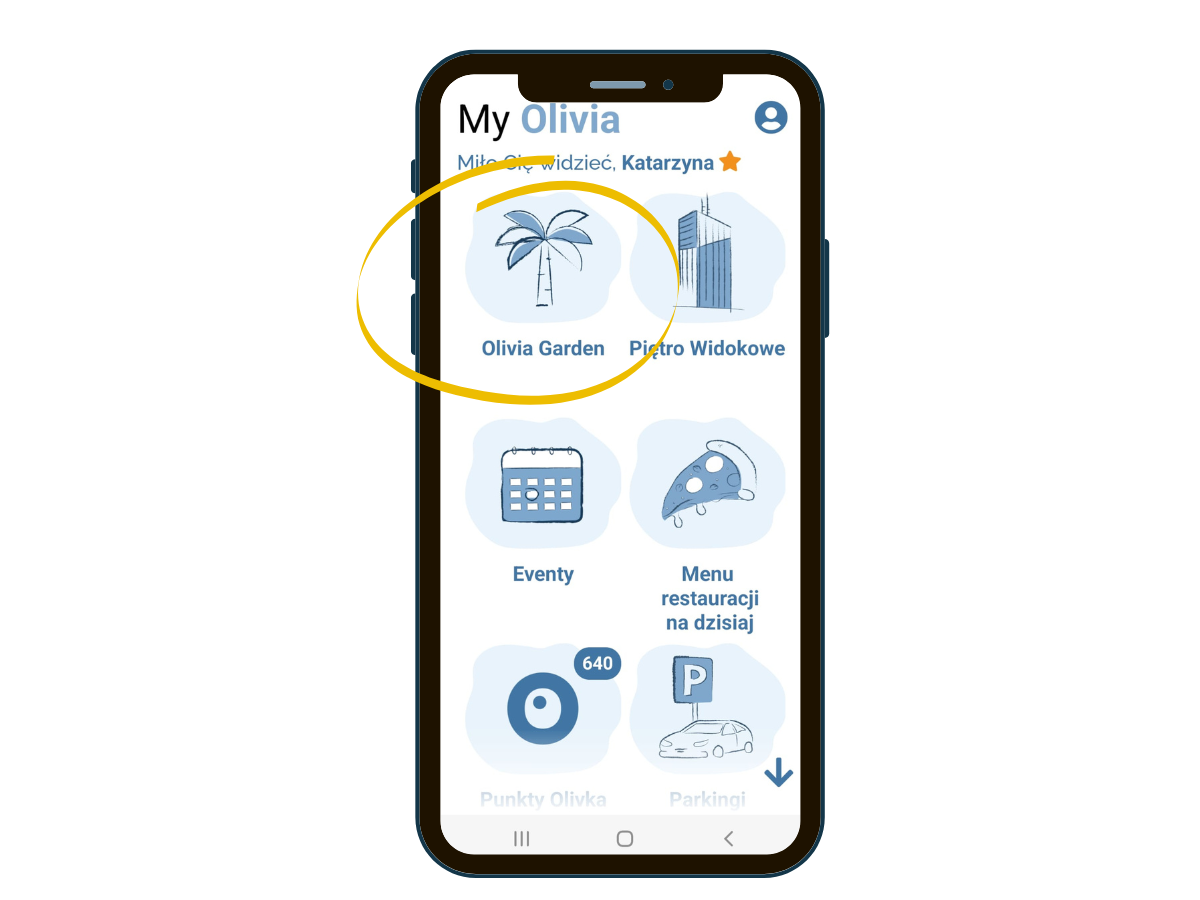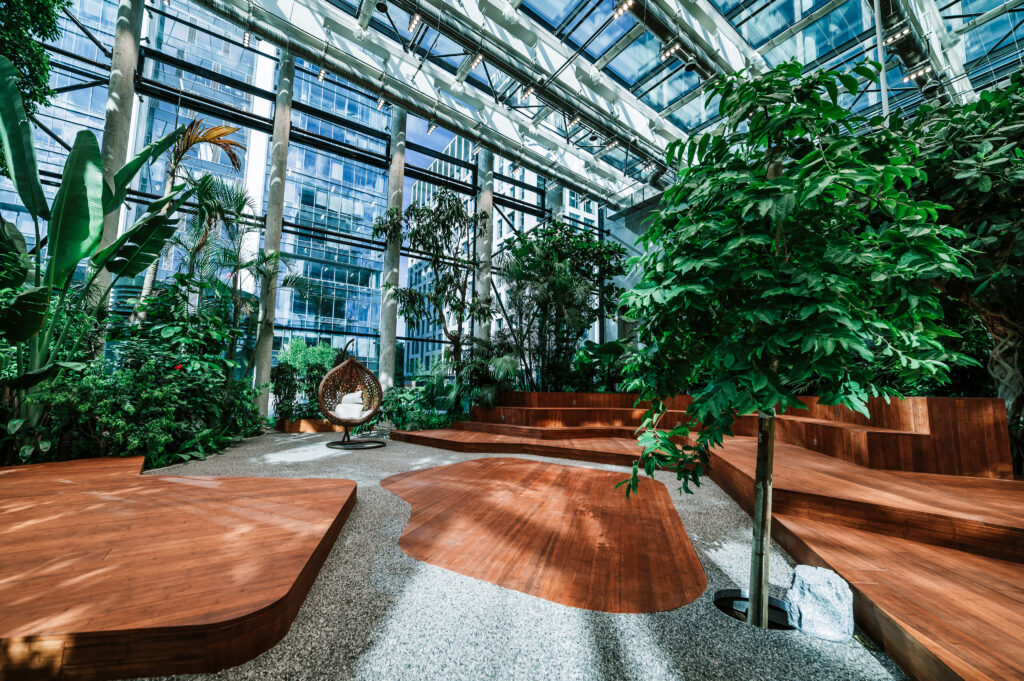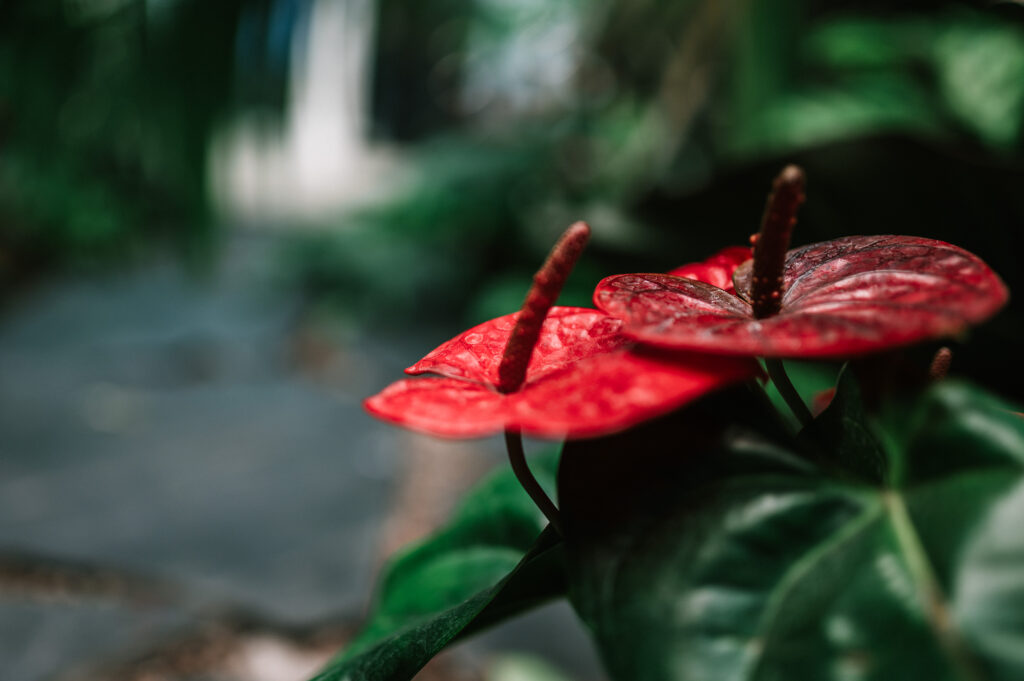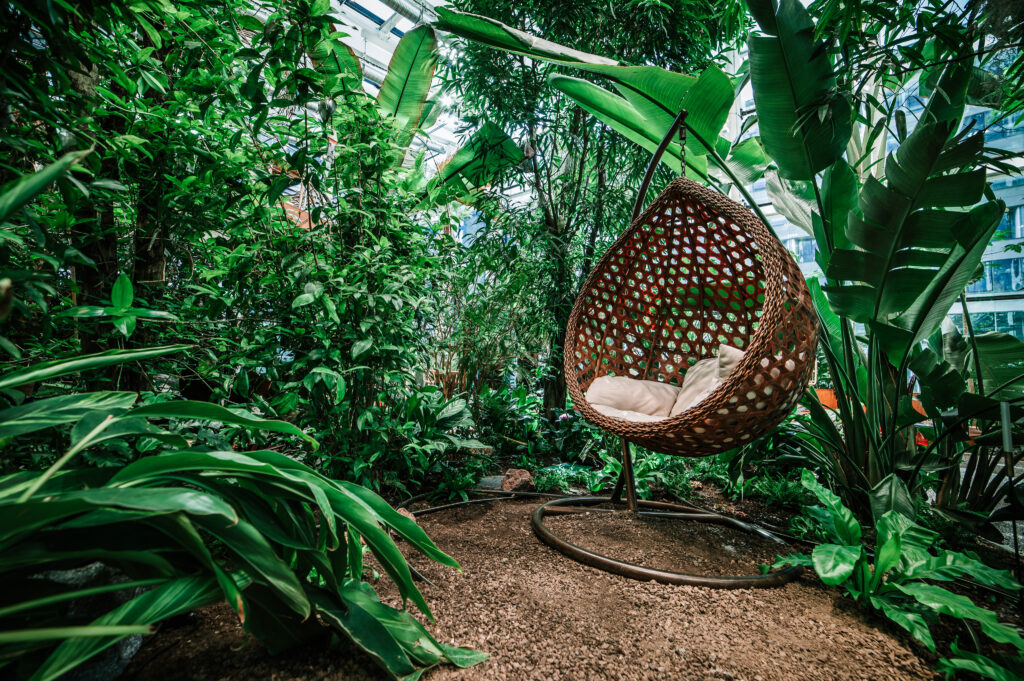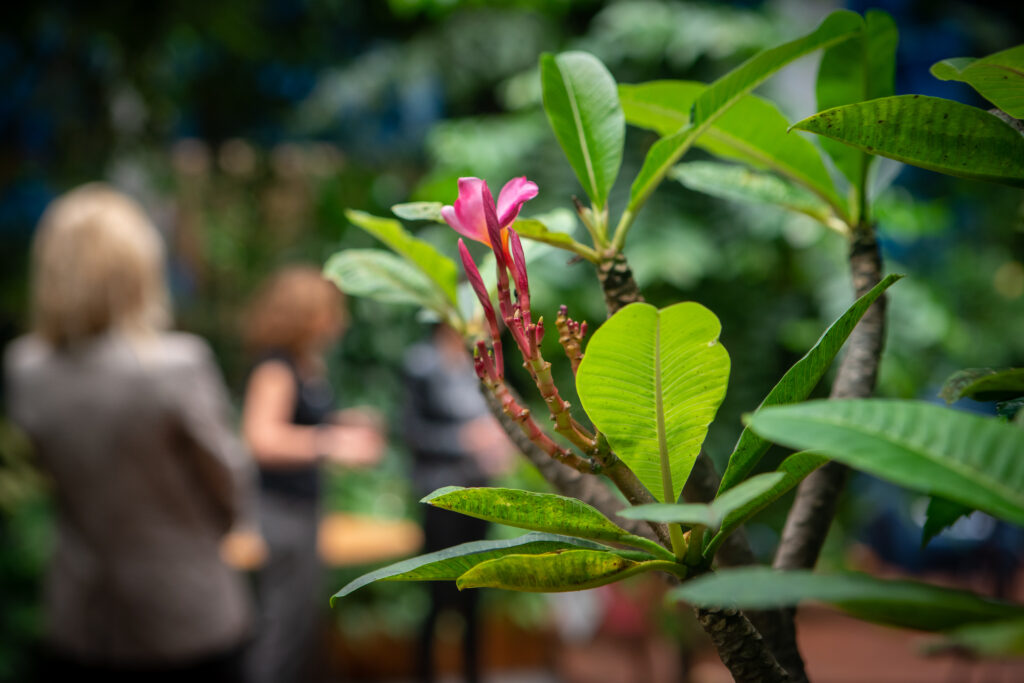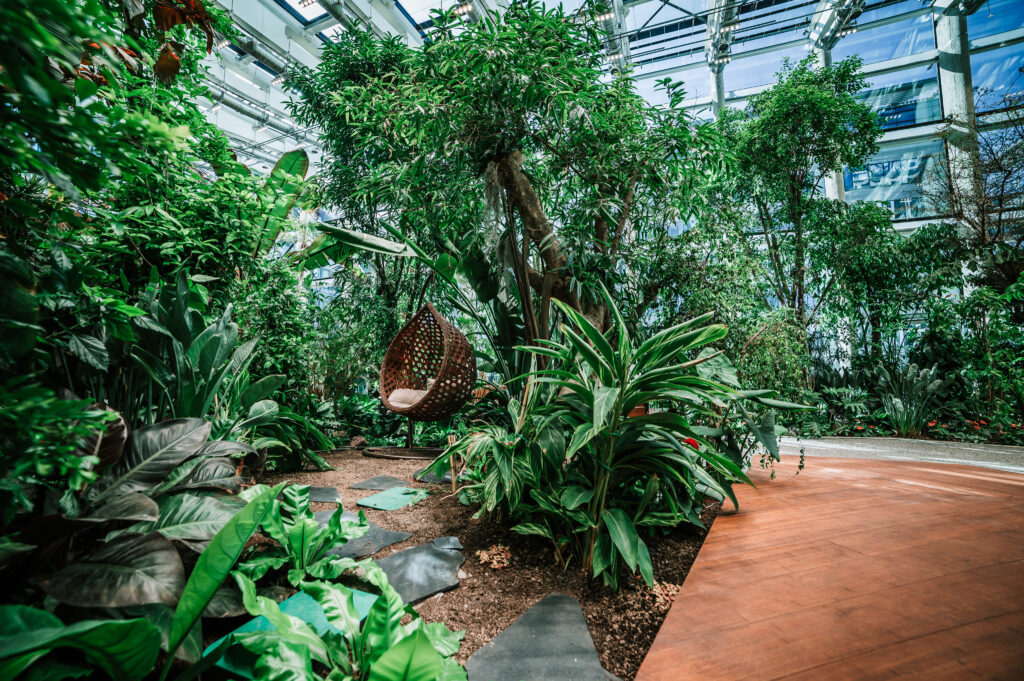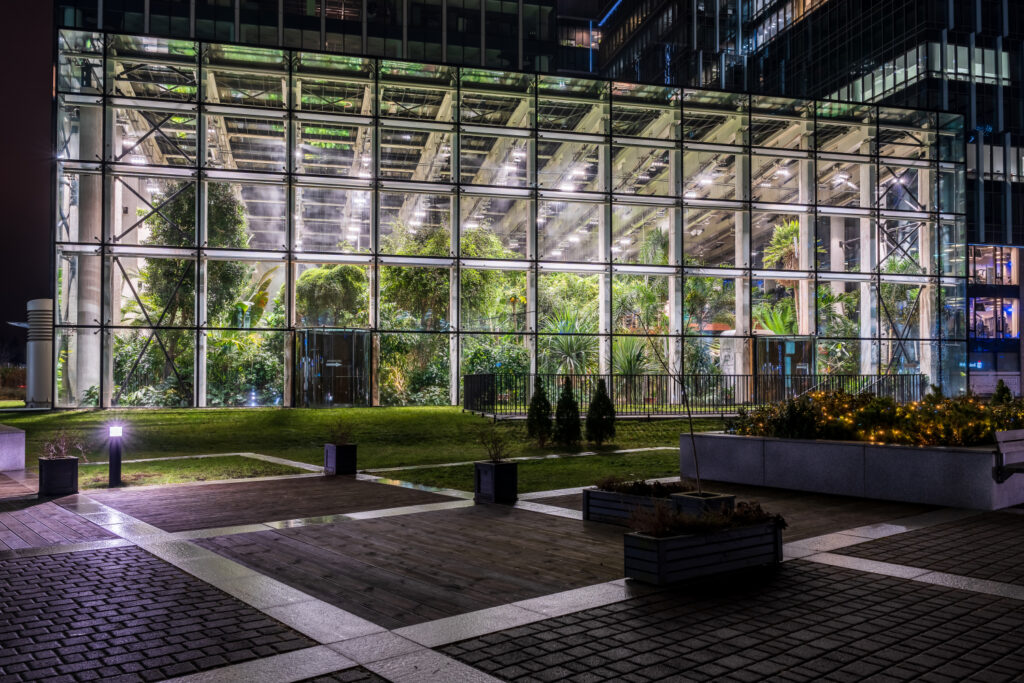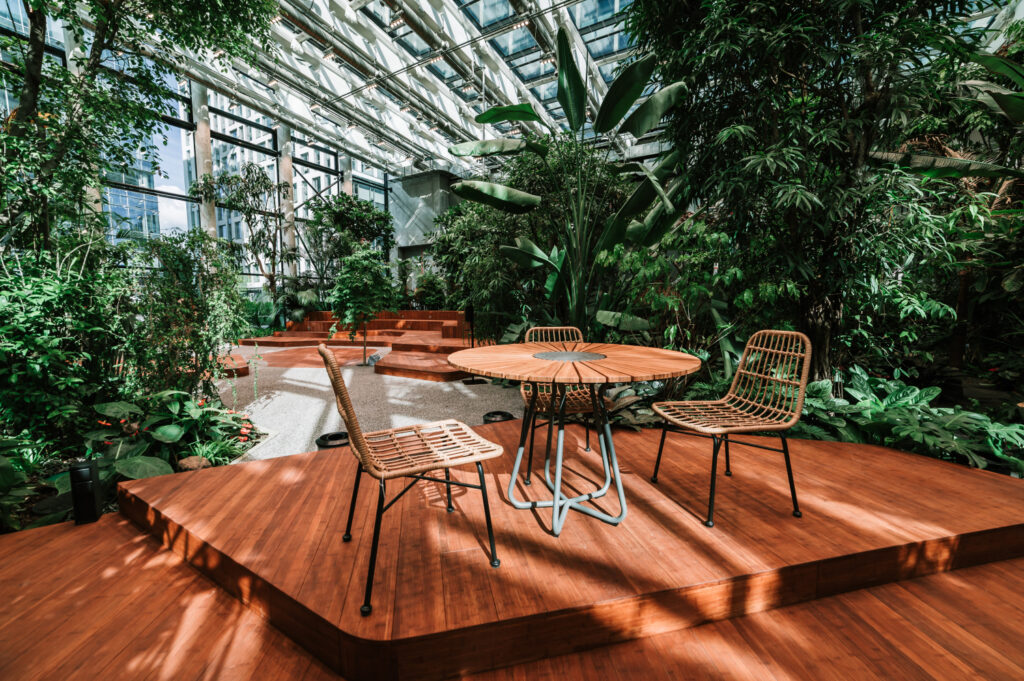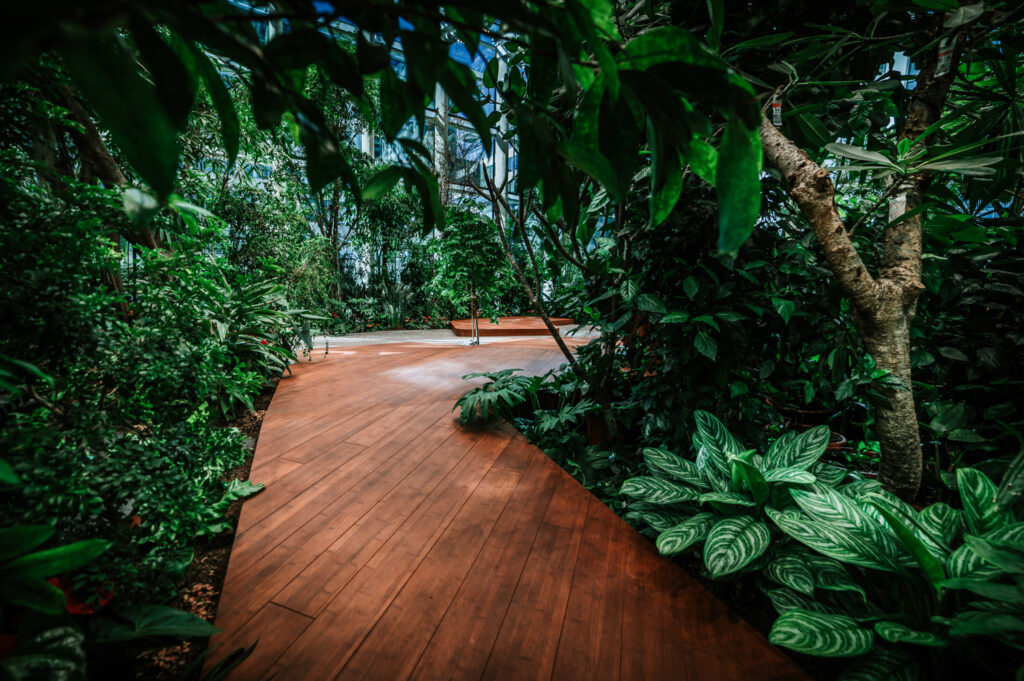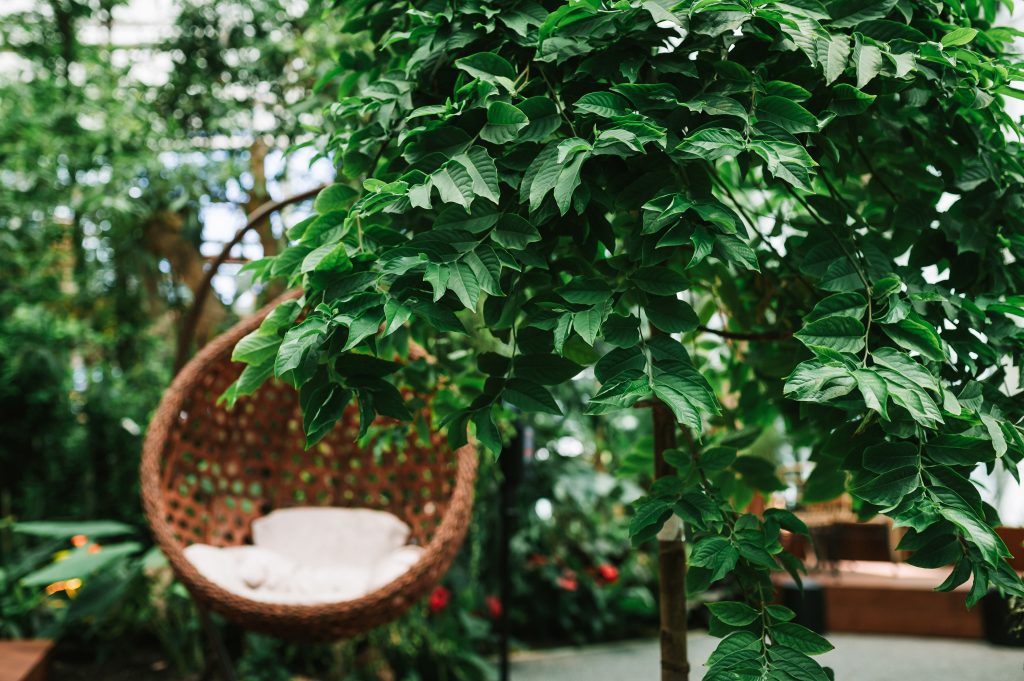As the year begins, many of us show signs of fatigue. We feel a lack of energy, apathy, weariness. Blue Monday, as the most depressing day of the year is commonly called, is behind us. Scientists emphasize that in autumn and winter we need much more light stimulation and more frequent contact with nature. However, do you have to go on an exotic vacation to recharge your body with positive energy?
This year’s winter, in which there is hardly any sun, has an exceptionally strong impact on our well-being and encourages us to escape to warm countries. However, not everyone can afford it. We miss not only the sun, but also contact with lush nature, with greenery and energy, which so positively stimulate us to act in spring and summer.
There are many methods to get tired in winter. Scientists emphasize that one of the most effective solutions is phototherapy, which we need to cope with the seasonal blues. Doctors recommend exposure to light 5 to 10 times stronger than that used for indoor lighting, i.e. from 2,500 to as much as 10,000 lux for 30 to 120 minutes a day, in addition for a period of 14 days. Mood improvement after this type of therapy occurs in 60-75% of patients.
A similar effect can be achieved through frequent contact with nature, especially in cities, where everyday fatigue and the ubiquitous greyness of the surroundings are much more noticeable than outside them. As he points out, Ph.D. Łukasz Balwicki, Head of the Department of Public Health and Social Medicine, Medical University of Gdańsk Increasing urbanization contributes to negative well-being and you should consciously choose places filled with greenery: In science, we are currently analysing the phenomenon of the regenerative environment and its impact on human health and well-being. This environment rejuvenates, reduces emotional and psychophysical stress, and rebuilds depleted attention resources.
Scientists from the Medical University of Gdańsk mentioned Olivia Garden – an oasis of exotic nature in the Olivia Centre – as one of the places that have a positive effect on humans. This tropical year-round garden is filled with thousands of plants from 4 continents, some reaching up to 11 meters. A significant number of them were brought from very distant corners of the world.
One such plant is the ficus. It comes from the south of the United States and has a unique history associated with it. Its unnatural shape is the result of Hurricane Katrina, which devastated New Orleans and most of South Carolina in 2005. After many trials, the tree found its way to Europe, from where it reached Gdańsk, to Olivia Garden. There are more examples of such stories in the garden. You will find them on labels near shrubs or flowers, so a visit to this place is a great opportunity to learn about many species of plants, the rules of their care, as well as… taste the fruits that grow on the garden trees in the TIKI bar.
Ph.D. Łukasz Balwicki poutlines the unique value of this place for health and work efficiency: Such gardens allow you to break away from the daily routine, are conducive to contemplation and rest. Thus, they have a positive impact on the ability to take on everyday challenges related to professional work. They also foster good social relations, creating a space for meetings. Increasing urbanization and the negative impact of ill-conceived architectural designs are prompting many scientists to study their impact on health and to develop concepts that can reverse these effects. Contact with nature is part of the idea of green cities.
Such a garden is also a technological challenge. Specially designed adaptive lighting provides plants with optimal growing conditions, but also has a beneficial effect on humans:
- we used as many as 120 specialized assimilation lamps that imitate daylight;
- they were designed by a Polish physicist, Tomasz Braczkowski, an expert in the field of lighting simulating sunlight, who perfectly combines breakthrough technologies in the field of LED lighting with the biological needs of plants;
- We have divided the lighting system into zones, thanks to which the lamps “cooperate” with natural light, which prolongs the day for plants;
- the lamps have specialized lenses, also designed for Olivia Garden, which shine pleasantly to the eye and give the plants the energy necessary for life;
- They also have a beneficial effect on humans, which can be safely described as phototherapy (light therapy).
The plants are irrigated not only by the soil, but also by sprinklers installed on the glass ceiling of the garden. The system has been designed in such a way as not to limit the ability of Olivia Garden guests to work and rest during sprinkling plants. Interestingly, during the day, the systems control the humidity level and temperature in the room, but once the garden is closed, everything starts to resemble a real tropical jungle, where the humidity reaches 100% and the temperatures rise well over 30 degrees. Importantly, the water circulation in the facility is closed, which allows to reduce its consumption to a minimum.
- We water the plants, extract and purify the water that is left and reuse it.
- As many as 88 fogging nozzles spread a mist of water vapour (at a pressure of 70 bar), increasing the humidity and comfort of plants.
- We have as many as 13 independent zones with individual hydration regulation.
- The dosing centre covers an area of over 100 m2 – there the water is filtered and enriched with appropriate doses of care products.
- All this to meet the requirements of each plant group individually! After all, they come from different parts of the world.
- During the opening hours of the garden, the humidity will be adjusted to the comfort of people. At night, after the closure of the facility, it will grow above 80% so that the plants are properly cared for:)
- The designer of this unique solution is engineer Tomasz Pogorzelec, whose greenhouse systems operate on the basis of the most modern global technologies! For many years he was associated with the Faculty of Horticulture, Biotechnology and Landscape Architecture.
The garden covers nearly a thousand square meters of space, which allowed for the creation of numerous zones for various forms of spending time. There is a zone in it, the so-called deep work, where you can perform tasks that require concentration on beanbags, a TIKI bar with an offer of exotic, healthy food, but also a café with original desserts. An amphitheatre and suspended wicker baskets are waiting for guests, conducive to relaxation and regeneration.
– The garden exceeded our expectations. It has become not only a favorite space to work, but also one of the most interesting attractions of the Tri-City, attracting residents and tourists all year round. I am convinced that its value increases in the autumn and winter period, where, apart from interesting facts about nature, we can take advantage of the beneficial effects of communing with nature and a truly summer climate. The garden is also a big market differentiator for Olivia, making it a truly multifunctional centre. It is one of the arguments that determine the choice of Olivia as the headquarters of even the most demanding employers – sums up Katarzyna Szymańska, Director of the Resident Relations Department at Olivia Centre.
Employees of Olivia Companies use the garden free of charge. All they have to do is generate their ticket to Olivia Garden in the My Olivia app.
